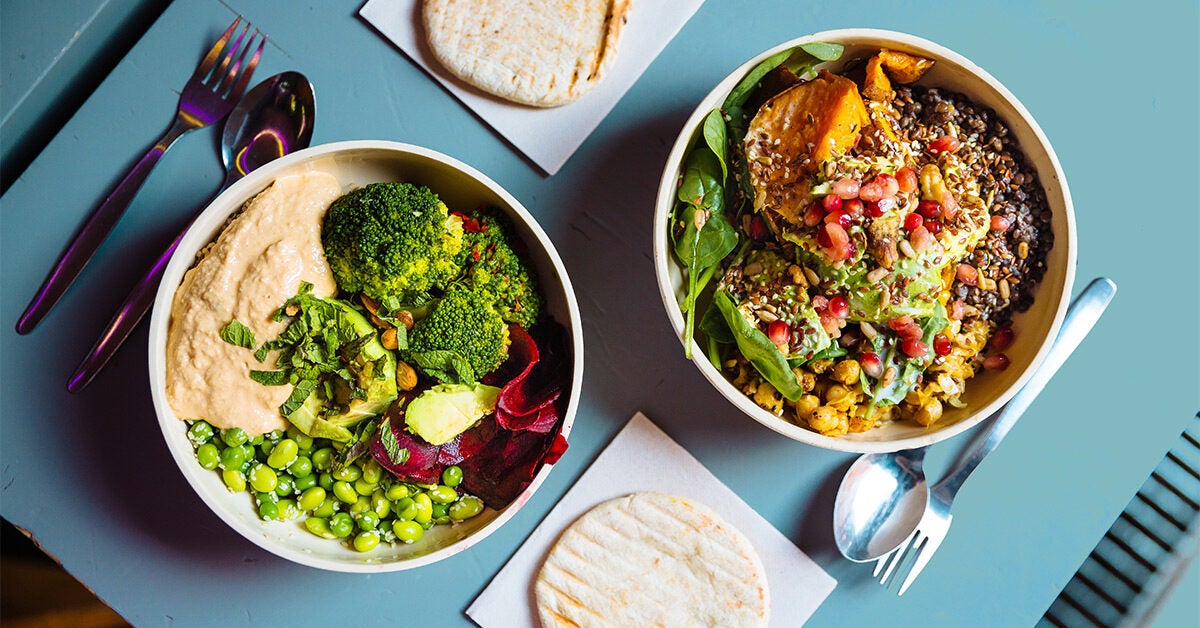

- New research shows that sugary, processed, refined foods are more likely to cause inflammation, which can lead to heart disease and stroke.
- Likewise, whole foods and healthier proteins decrease inflammation, leading to better health outcomes.
- It's best to follow something similar to the Mediterranean diet while avoiding red meat, sugary drinks, and processed foods.
- A healthy diet, combined with exercise, will decrease one's chances of developing chronic disease.
You may have heard your doctor tell you at some point that it's best to adopt a largely plant-based diet and avoid processed, refined, sugary foods.
Now, a new study underlines the importance of this medical wisdom.
The research published this month in the Journal of the American College of Cardiology (JACC) shows that a diet of foods that causes increased inflammation in the body is associated with an increased risk of cardiovascular disease and stroke.
The data for the study came from the Nurses' Health Studies I and II, analyzing more than 210,000 people starting in 1986. It included up to 32 years of follow-up.
Previous studies have shown that following a more plant-based diet, such as the Mediterranean diet, will lead to lower inflammatory risk over time.
Dr. Jun Li, a research scientist in the department of nutrition at Harvard T.H. Chan School of Public Health in Boston, Massachusetts, and the study's lead author, told Healthline that the findings were consistent across different cohorts and between men and women.
"Inflammatory potential was significantly associated with higher incidence of cardiovascular disease, compared with the 20 percent of study population consuming the most anti-inflammatory diet," she noted.
"The 20 percent of study population consuming the most pro-inflammatory diet were 46 percent more likely to develop heart disease and 28 percent more likely to develop stroke," she said.
Li points out that while the findings were clear-cut, further research can help validate the relationship between certain foods and inflammation.
"Our study includes only nurses and health professionals, and our study population was mostly white, so it is important to extend and replicate our findings in other populations," she said. "We are doing similar analysis in other cohorts with higher proportions of African American and Hispanic participants."
Many foods in the typical North American diet will cause the inflammation that can lead to cardiovascular issues down the road — namely sugary drinks, processed meats, and refined grains.
"Related to this study, I would say it's best to reduce the intake of refined grains, especially fried grains [as well as] red, processed, and organ meat, and sugary beverages," Li said.
"To say to never eat these foods would be impossible, but try to reduce the intake of these foods and replace them with whole grain, plant-based, or other healthy sources of protein, such as fish. Also, increase intake of leafy green and dark yellow vegetables and fruit," she added.
In short, following a diet that's rich in fruit and vegetables, along with whole grains and healthy proteins, is better for your health than eating refined and processed foods.
Dr. Andrew Freeman, a cardiologist and director of cardiovascular prevention and wellness at National Jewish Health in Denver, told Healthline that doctors have been recommending this for years.
"It's really no surprise that predominantly whole, low fat, plant-based foods that are known to be anti-inflammatory continue to be the best way," he told Healthline. "It's also no surprise that foods like sugary drinks, meats, cheeses, fatty foods, and so on are associated with worse outcomes."
"It's just another signal in all the noise that's out there that diet is a super important part of our approach to taking good care of patients, and eating a predominantly low fat, whole food, plant-based diet is really powerful," Freeman added.
The fact that plant-based diets are healthier than diets rich in processed foods isn't exactly a new discovery.
Still, unhealthy diets are common, with heart disease being the leading cause of death in the United States.
While eating a burger and fries and washing them down with a soda might be more satisfying than eating a salad in the short term, thinking long term can yield positive results.
Freeman says he interviews patients to find out what personally motivates them. As an example, most parents probably want to stay in good health so they can see their children get married and enjoy time with their grandchildren when they get older.
While there's no shortage of products on the market that promise better health, Freeman says the real solution is far simpler: lifestyle medicine.
"People are willing to do almost anything to get healthy, taking the most random and bizarre supplements and pills," he said. "But at the end of the day, if there was a quote-unquote 'pill' that's more powerful than the other stuff, would you take it? That 'pill' is lifestyle medicine."
Freeman says that lifestyle medicine consists of living a healthy life: following a predominantly plant-based diet, getting regular exercise, getting rid of stress, and getting enough sleep.
"Those things would probably conquer the vast majority of chronic disease in this country if we were able to really implement," he said.
These 'Inflammatory Foods' Can Increase Heart Disease, Stroke Risk, Source:https://www.healthline.com/health-news/these-inflammatory-foods-can-increase-heart-disease-stroke-risk-heres-how-to-avoid-them